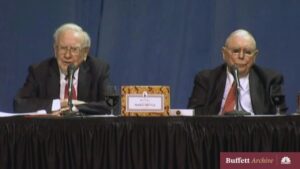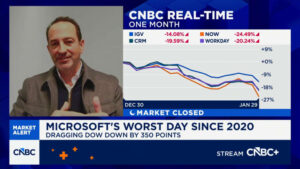Nortasha Jackson, a 49-year-old grandmother and self-described “Southern girl,” became a proud homeowner in Valley, Ala., about three years ago. Her house, located a short walk away from a lake, became her “blessing,” she said.
Many people don’t get a shot at homeownership, and she certainly never thought she’d be so lucky.
“I finally got something to leave my kids,” said Jackson, who largely relies on disability benefits for her livelihood. “I was a teenage parent — I had my first child at 15 — so I never thought I’d be able to actually own my own home.”
But it was in front of that house that police arrested her on Nov. 26, the Saturday after Thanksgiving, she said.
Jackson was placed in handcuffs and carted off to jail that day because she failed to pay the property’s trash bill for May, June and July of last year, accumulating a $60 debt. The city tacked on an additional $25 fine in August and allegedly set a court date, though that event didn’t appear anywhere on local records, according to her attorney at the Southern Poverty Law Center. Jackson also said she never missed an appearance.
Kids playing on her street watched as she was treated like a criminal. She remembers not wanting them to see her in the back of a police car.
“It was just an experience that I really and truly wish nobody else has to go through,” Jackson said. “Not for trash, anyway. Never for trash.”
Jackson’s case and her misdemeanor charge of “failure to pay solid waste fees” were dismissed by a Chambers County judge in late February after the Southern Poverty Law Center stepped in to argue her prosecution was unjust. But her plight is representative of a larger issue in Valley, according to the Montgomery-based legal-advocacy organization: The city has a history of criminally charging residents — particularly Black homeowners like Jackson — for overdue trash fees, relying on a state law that doesn’t authorize criminal penalties in the first place, according to a letter the Southern Poverty Law Center sent local officials March 2.
Between 2004 and the end of last month, Valley made 830 arrests over people allegedly failing to pay trash fees, Micah West, a senior staff attorney for the Southern Poverty Law Center’s Economic Justice Project and a lawyer for Jackson, told MarketWatch. About 63% of the arrests where race was recorded in court filings — 523 out of 825 cases — involved Black people, who otherwise make up about 38% of the city’s population. More than 300 involved Black women, specifically.
Racial disparities were more pronounced when considering arrests of older people and people arrested more than once over their trash fees, West added: Of the 14 residents who were arrested when they were 70 or older, 13 were Black, as were 79 of the 108 residents arrested multiple times.
Valley is still free to pursue civil proceedings over unpaid fees and suspend trash services, West said. Indeed, by the time Jackson paid a bondsman $285 toward her $2,500 bail to avoid a weekend in jail, she’d already been putting her garbage in the backyard for several months, since the city had taken away her trash can over unpaid bills.
But prosecuting people for unpaid trash bills is not authorized by law, the Southern Poverty Law Center said in its letter to the city, and is potentially a violation of federal housing regulations and protections against debtors’ prisons.
“Though Valley’s arrests of people who can’t cover their bills might seem harsh, strict punishments for missed payments and minor infractions among low-income people are hardly a local issue, experts say.”
“The city relies on suspension of trash services, fines, and criminal prosecution to coerce payment of overdue trash bills, regardless of a person’s ability to pay,” the Southern Poverty Law Center said.
Leonard Riley, the mayor of the city of Valley, declined to comment, and attorneys for the city did not immediately respond to messages from MarketWatch.
Riley told AL.com in January that residents could ask for fee exemptions if they’re unable to pay. He said the city was setting up a committee to review its fees and trash-collection practices, adding, “I just want people to pay their trash bill.”
Still, when asked about the case of one 82-year-old arrested last year over an unpaid trash bill and whether it bothered him, he told AL.com columnist John Archibald that it didn’t.
“It bothers me that she was delinquent,” Riley said of the woman, according to AL.com. “Delinquent is delinquent. They had so many chances to pay.”
‘An extreme example’
Apart from saying the city lacks the legal authority to arrest people for unpaid trash bills, the Southern Poverty Law Center has accused the city of potentially violating the federal Fair Housing Act, which bans discrimination. The Southern Poverty Law Center noted in its letter last month that trash pickup is a basic utility service the city disproportionately denies to Black residents with past-due payments. What’s more, even if the arrests were allowed under local law or a separate state law, it would nonetheless be unconstitutional to prosecute poor residents over bills they couldn’t pay, the Southern Poverty Law Center said.
“The simple thing is to stop prosecuting people who cannot pay their trash bill and restore their services,” West said.
The Southern Poverty Law Center told Valley officials that the city’s exemption option for trash fees, which only currently applies to households that rely solely on disability benefits for income, should be expanded to cover indigent and elderly residents, too. Valley should also work to link struggling residents with payment plans and agencies that offer utility assistance, the Southern Poverty Law Center said in its letter, and amend its municipal code to “clarify that service suspensions, fines, and criminal penalties are permissible only for willful nonpayment of trash fees, a limitation that is required by the Alabama and U.S. constitutions.”
The Southern Poverty Law Center is not alone in arguing against more severe trash-bill punishments in Alabama. A mother of three who said she was jailed for a weekend in 2011 after failing to pay a $94 trash bill filed a class-action lawsuit against Valley in January, according to reporting from WIAT, a CBS affiliate in Birmingham.
“In this country and state, we do not have debtors’ prisons,” the federal lawsuit against the city said, according to WIAT.
The news station, which said the mother’s debt grew to nearly $700 over the next decade due to fines from her case, reported there were similarly “dozens of individuals with active warrants for their arrest in relation to unpaid garbage fees” in Valley.
One such case went viral late last year: Martha Menefield, the 82-year-old Black woman mentioned in the AL.com article, was arrested for missing a trash bill worth $77.80. Valley Police Chief Mike Reynolds said in a statement posted to Facebook Nov. 29, two days after Menefield’s arrest, that the city had attempted to contact her several times and alleged she had missed a court date. Reynolds said she was treated respectfully by officers; body-camera footage posted to YouTube by the Law & Crime Network showed the officer apologizing as he handcuffed her.
Though Valley’s arrests of people who can’t cover their bills might seem harsh, strict punishments for missed payments and minor infractions among low-income people are hardly a local issue, experts say. Nationwide, people are penalized for being unable to pay all sorts of debts, all the time.
“When people aren’t able to pay, then they receive more punishments — it can be warrants for nonpayment, it could be additional costs for late payment, it could even be incarceration in certain jurisdictions,” said Alexes Harris, a professor of sociology at the University of Washington and the author of “A Pound of Flesh: Monetary Sanctions as Punishment for the Poor.” “This is a new normal for court systems to criminalize poverty.”
Many states suspend people’s driver’s licenses over unpaid tickets and other fines, for example, which forces people to drive without a license when they need to get to work or school, potentially resulting in further fines and even jail time. On the local level, people have been arrested, charged or fined for failing to make repairs on their homes they couldn’t afford; not showing up to court dates relating to past-due medical debts; and missing payments for overdue library fines. Homeowners have also faced foreclosures over unpaid “user fees,” including for garbage collection, as well as delinquent sewer bills.
“‘If you’re poor, you’re poor. You’re just working to keep surviving.’”
— Nortasha Jackson
Meanwhile, certain cities have even been accused of “policing for profit,” or fining residents as a way to pad their budgets. Residents sued Doraville, Ga., in 2018 over allegations that the city imposed unnecessary fines on people over offenses such as cracks in their driveway or a “disorganized” pile of wood in their yard. Last year, people also filed a complaint against Brookside, Ala., alleging the city ticketed drivers for the purpose of towing their vehicles and making them pay fines to get them back. Though the Doraville lawsuit has since been dismissed, the Justice Department indicated its support for the Brookside lawsuit in a brief last July.
The case of Jackson, the Valley homeowner, “is an extreme example where someone is actually arrested for nonpayment of a garbage bill, but it’s not that uncommon for us when people are being criminally cited for trivial municipal-code violation,” Lisa Foster, co-executive director of the Fines and Fees Justice Center, told MarketWatch.
People have been jailed for unpaid trash bills and water bills in other parts of Alabama too, West noted. The Southern Poverty Law Center secured a Baldwin County man’s release in 2013 after he spent two weeks in jail over an unpaid $88 trash bill, and in 2016 successfully urged the small city of Chickasaw to rescind an ordinance that criminalized failing to make bill payments.
When such fines are “issued against people who are poor — for example, a housing-code violation because your front steps are broken, and people don’t have the money to fix their front steps — it doesn’t help to charge them money,” Foster said. “That’s only going to delay their ability to save enough money to solve the problem. Cities and counties should be trying to come up with programs that help people stay in their homes and maintain their homes.”
For low-income people, the punishments can also feel like a bit of a threat: They may be on the pathway toward economic stability, but just one missed payment away from catastrophe. The homes in Jackson’s neighborhood aren’t worth much, she said, and may even have more value if they were razed and replaced with fancier structures. But they’re people’s homes nonetheless.
“A person shouldn’t be penalized because they can’t afford to fix it up as quickly as possible,” Jackson said. “If you’re poor, you’re poor. You’re just working to keep surviving.”
‘Enormous impact’
Valley is full of struggling families, Jackson told MarketWatch, including her own.
Jackson currently relies on disability payments and a part-time cashier job at a convenience store — a potentially temporary position she received in July through the “Ticket to Work” program for people receiving Social Security benefits, which allows people to seek employment without automatically losing their disability income — to get by. Even with that convenience-store job supplementing her disability checks, though, she makes about $1,600 to $1,700 monthly.
But when she fell behind on multiple monthly trash bills last summer, Jackson was relying solely on her disability-based income of approximately $1,000 per month, which put her solidly below the federal poverty level, the Southern Poverty Law Center wrote in its letter to Valley officials. At the time, her only job was being a caregiver for her grandchildren and other relatives.
While the monthly trash payments might not seem like much of a strain on a small budget — they’re typically around $20 to $25, according to Jackson — she said she didn’t cover them for two reasons: She had other bills to pay, and so much else going on that they slipped her mind.
By the time she went to pay off the missed bills later in the summer — she couldn’t remember the exact date — the city said it was too late, she said. She remembered being told she’d have to deal with late fees and a warrant.
“I thought it was just going to be a simple process,” she said. “But it was far from simple.”
After that, Jackson said, she didn’t hear anything further, though the city took her trash can away.
That itself was a big punishment: She went without trash pickup for several months, since the city wouldn’t accept payment to resume collection until her case was resolved. The Equal Justice Initiative, another Montgomery-based nonprofit legal organization, eventually paid off Jackson’s trash fees and covered the cost of garbage removal in her yard, but it was “nasty” for a time, Jackson said.
“I think we take for granted trash services, but it’s necessary for public health and safety,” West said. “Without trash services, there’s a risk of land contamination, water contamination, rodents, infestation — it just has an enormous impact on people’s health and wellbeing.”
The eventual November arrest and couple of hours spent in jail caught her by surprise, and the reality of having to pay bail — a condition of leaving imprisonment before one’s court date — was tremendously stressful. If she had difficulty covering a small bill, how was she supposed to come up with a bond payment? And what if she was convicted and faced an even bigger financial penalty?
“You might as well have just locked me up, because I know good and well I’m not going to be able to afford that,” Jackson said. “If you miss a payment, you’re going to jail anyway.”
With the help of her attorneys, she avoided deeper involvement in the criminal-justice system.
Jackson didn’t ask to become a spokesperson for people staring down fines and fees for overdue trash bills, but it feels particularly important right now to fight for economic equality, she said. For some people in her neighborhood, it feels like it’s becoming too expensive to exist.
“I’m seeing something that I’ve never seen in this area, and it’s homelessness,” Jackson said. “People can’t live. It’s older people that are losing their homes — leaving homes that they’ve rented for years.”
She has pride in the life she’s made for herself, but wants to know it won’t be jeopardized by something like overdue trash bills. She didn’t even know so many others in her community had been arrested for the same offense.
“We’re not going to let it just slide away this time,” Jackson said.
This post was originally published on Market Watch






